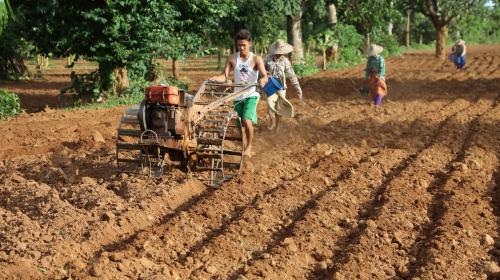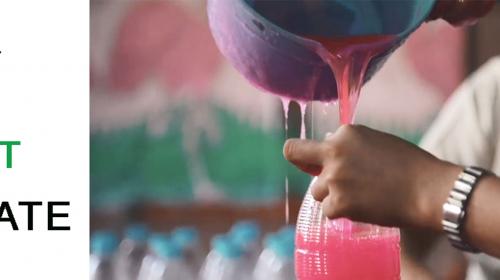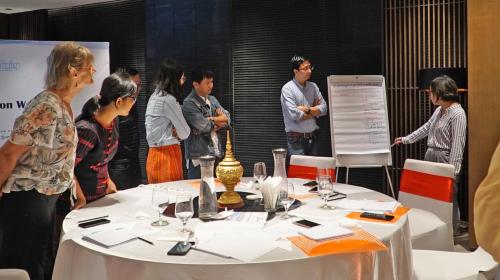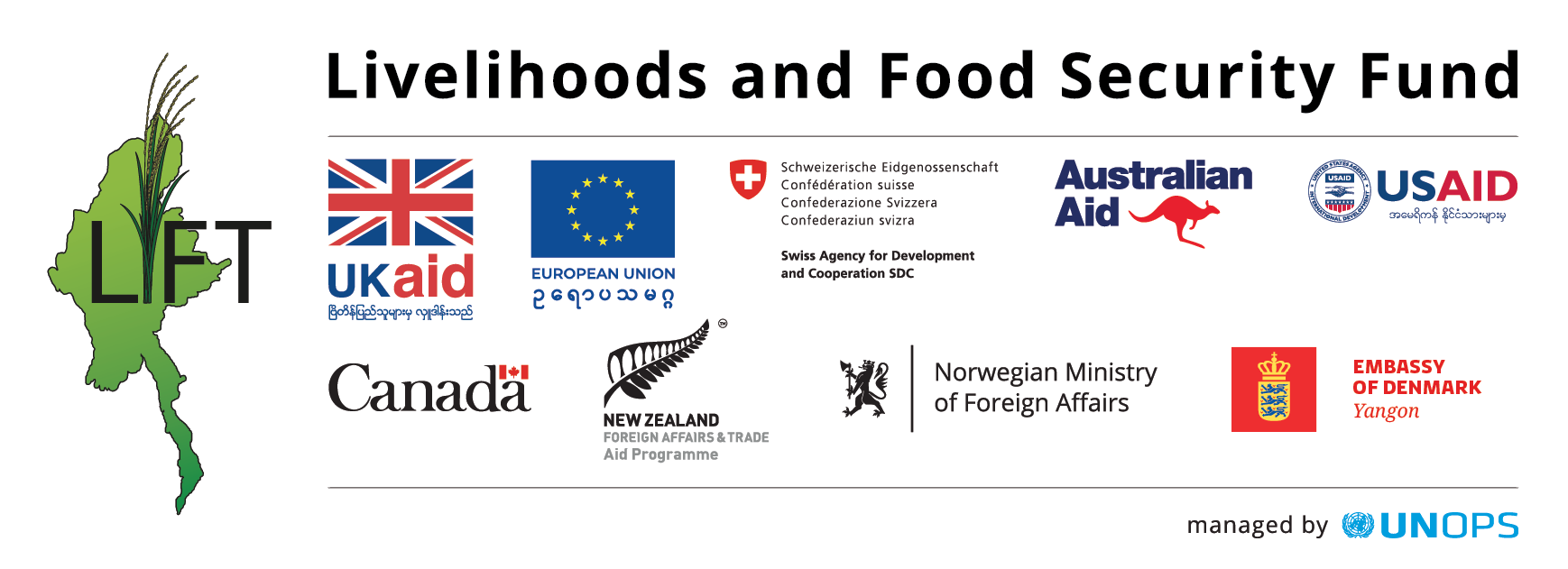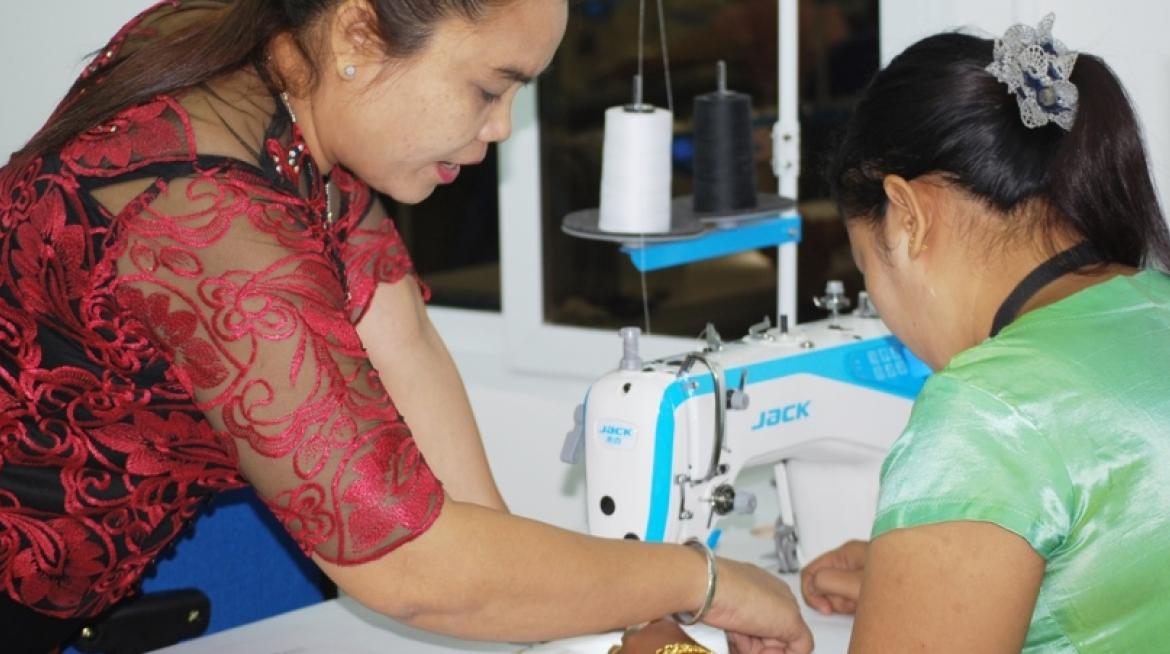
The development of a training sector for Myanmar’s garment industry is well underway thanks to collaboration between the Ministry of Labour, Immigration and Population, development partners and the private sector.
The Aung Myin Hmu consortium, brings together CARE Myanmar, BusinessKind Myanmar and Pyoe Pin, who work with private sector garment factories, government and civil society to improve the quality and safety of employment for urban migrant women by providing vocational training relevant to the garment industry.
The consortium has established a Garment Skills Training Centre with industrial-standard sewing machines at North Dagon in collaboration with MOLIP, who has provided the training premises.
On August 18, MOLIP Director General U Win Shein and Pyoe Pin representative Gerry Fox signed a Memorandum of Understanding at the training centre between the Ministry and the consortium, formalising the collaboration.
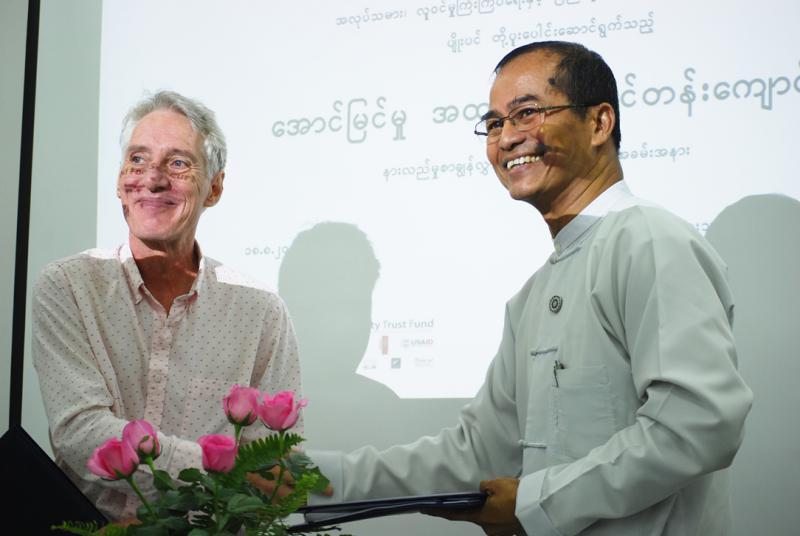
MOLIP Director General U Win Shein and Pyoe Pin representative Gerry Fox. Photo credit: LIFT
In his opening speech at the event U Win Shein said developing a skilled labour force was important to government, investors and workers and he praised the project for its contribution to improving industry competitiveness and livelihood opportunities, particularly for migrant workers.
The Aung Myin Hmu consortium is also developing National Occupational Competency Standards for the industry in collaboration with MOLIP’s National Skill Standards Authority. This will result in a curriculum, trained assessors and certification for trainees.
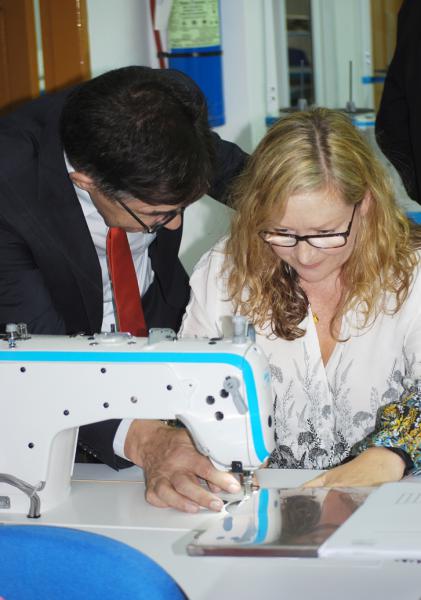
LIFT Fund Board Chair, Jo Raisin from the UK Department for International Development (DIFD) tests out a sewing machine. Photo credit: LIFT.
Pyoe Pin’s Garment Sector Specialist Sue Tym said that two garment factories had signed up to run accredited training lines in their factories, and that trainers from these two factories had already begun training at the North Dagon centre.
“This is very exciting – it is not only that these own factories’ workers have access to certified training, but that together we are building the model, the foundation for a sustainable training sector for the industry,” Ms Tym said.
“As more and more factories sign up, the pool of trainers and assessors will grow and the sustainability of the industry’s training sector will increase. The efficiency and productivity of workers, factories and the industry will rise, as will the quality.”
The USD 3 million Aung Myin Hmu Project is funded by LIFT’s Migration Programme.
Work began on refurbishing the North Dagon training centre in April 2017. Interviews are being conducted now for the first group of trainees who will start training in coming months. Up to 120 trainees will participate in the accredited training at any given time. Courses run for two months and are followed with in-factory experience.

